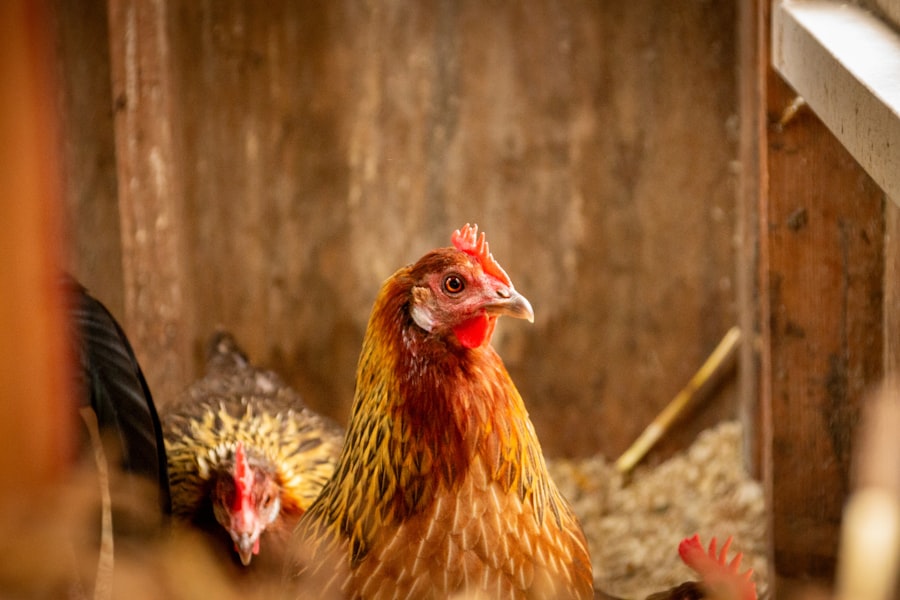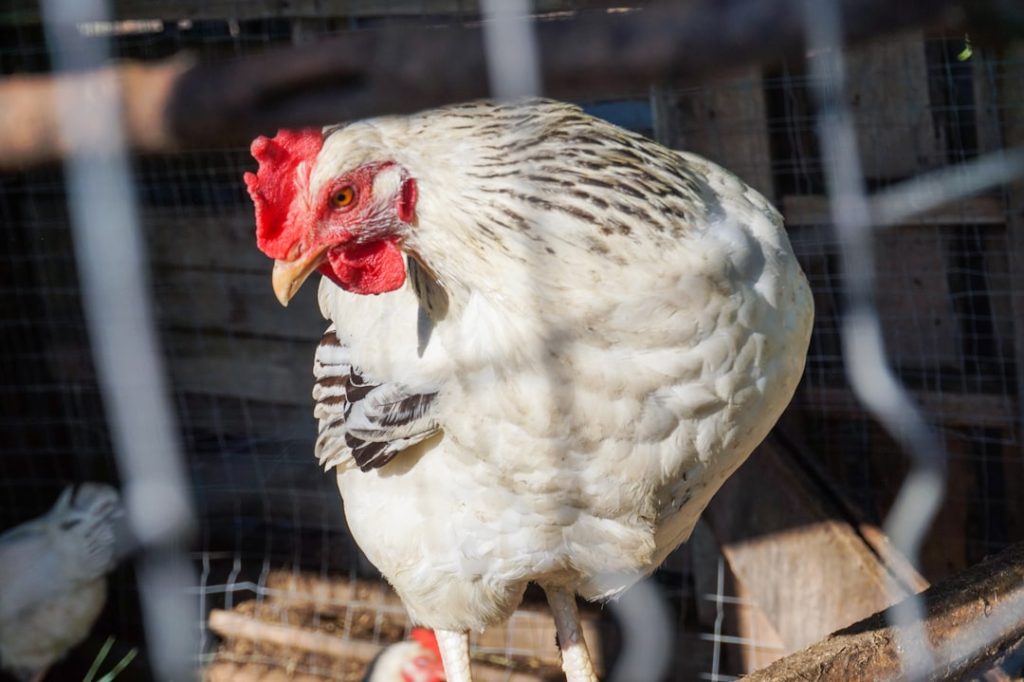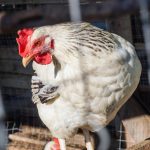When preparing for a hurricane, it is essential to understand the associated risks. Hurricanes are powerful tropical storms characterized by strong winds, heavy rainfall, storm surges, and flooding. These extreme weather conditions can cause significant damage to infrastructure and pose serious threats to human life.
Being aware of these potential risks allows individuals to take proactive measures to protect themselves, their families, and their property. One of the primary risks of hurricanes is the strong winds, which can exceed 74 miles per hour. These winds can cause extensive damage to buildings, trees, and power lines.
Heavy rainfall accompanying hurricanes can lead to flooding and water damage. Storm surges, large walls of water pushed ashore by hurricane winds, pose significant risks to coastal areas. Understanding these risks is crucial for taking necessary precautions to secure homes and ensure family safety during a hurricane.
Power outages and communication disruptions are additional risks associated with hurricanes. Strong winds and heavy rainfall can damage power lines and telecommunication infrastructure, potentially leaving affected areas without electricity or the ability to communicate with emergency services. Being prepared for these disruptions is vital for ensuring access to necessary resources and communication tools during the storm.
By comprehending the risks associated with hurricanes, individuals can take proactive steps to secure their homes, stock up on supplies, and create evacuation plans if necessary.
Table of Contents
- 1 Securing the Coop:
- 2 Providing Adequate Shelter:
- 3 Stocking Up on Supplies:
- 4 Creating a Plan for Evacuation:
- 5 Monitoring Weather Updates:
- 6 After the Storm:
- 7 FAQs
- 7.1 What are the risks to chickens during a hurricane?
- 7.2 How can I prepare my chicken coop for a hurricane?
- 7.3 What should I do with my chickens during a hurricane?
- 7.4 How can I protect my chickens from flying debris during a hurricane?
- 7.5 What should I do if my chickens are injured during a hurricane?
- 7.6 How can I ensure my chickens have access to food and water during a hurricane?
Key Takeaways
- Understanding the Risks:
- Know the potential hazards in your area, such as flooding, high winds, and power outages.
- Understand the importance of preparing for emergencies and the potential impact on your coop and flock.
- Securing the Coop:
- Ensure the coop is structurally sound and can withstand severe weather conditions.
- Secure loose items around the coop that could become projectiles in high winds.
- Providing Adequate Shelter:
- Make sure the coop is elevated to prevent flooding and has proper ventilation to prevent heat buildup.
- Have a backup plan for sheltering your flock if the coop becomes compromised.
- Stocking Up on Supplies:
- Have a sufficient supply of feed, water, and bedding to last at least a week.
- Keep a first aid kit and any necessary medications on hand for your flock.
- Creating a Plan for Evacuation:
- Have a plan in place for safely relocating your flock if necessary.
- Identify potential evacuation locations and have a means of transporting your flock.
- Monitoring Weather Updates:
- Stay informed about approaching storms and heed any evacuation warnings.
- Have a reliable method for receiving weather updates, such as a weather radio or smartphone app.
- After the Storm:
- Assess any damage to the coop and make necessary repairs.
- Check on the well-being of your flock and address any injuries or stress-related issues.
Securing the Coop:
Protecting Your Home’s Exterior
Consider reinforcing your windows with storm shutters or plywood to protect them from flying debris and strong winds. Additionally, make sure that your roof is in good condition and can withstand the force of a hurricane. Another important aspect of securing your home is ensuring that your outdoor furniture, decorations, and other loose items are properly secured or brought indoors.
Securing Outdoor Items
These items can become dangerous projectiles during a hurricane and cause significant damage to your property or neighboring homes. Store outdoor furniture in a secure location or use tie-downs to prevent it from being blown away by strong winds. Taking these precautions will help minimize the risk of damage to your home and surrounding areas during a hurricane.
Safety of Pets and Livestock
In addition to securing your home, it’s important to consider the safety of your pets and livestock. If you have a chicken coop or other animal enclosures on your property, make sure they are properly secured and reinforced to withstand the force of a hurricane. Consider installing additional supports or anchors to prevent these structures from being damaged or blown away by strong winds. By taking these proactive measures, you can help ensure the safety of your animals and minimize the risk of damage to your property during a hurricane.
Providing Adequate Shelter:

Providing adequate shelter is essential for ensuring the safety of yourself, your family, and your animals during a hurricane. If you live in a hurricane-prone area, it’s important to have a designated safe space within your home where you can seek shelter during the storm. This space should be located on the lowest level of your home, away from windows and exterior doors, to minimize the risk of injury from flying debris or broken glass.
Consider reinforcing this area with additional supports or anchors to ensure its structural integrity during a hurricane. If you have a chicken coop or other animal enclosures on your property, it’s important to provide adequate shelter for your animals as well. Consider reinforcing these structures with additional supports or anchors to prevent them from being damaged or blown away by strong winds.
Additionally, make sure that your animals have access to food, water, and bedding during the storm to keep them safe and comfortable. By providing adequate shelter for your animals, you can help ensure their safety and well-being during a hurricane. In addition to providing shelter within your home, it’s important to have a plan in place for evacuating to a designated emergency shelter if necessary.
Familiarize yourself with the location of nearby shelters and evacuation routes in your area so that you can quickly and safely evacuate if instructed to do so. Keep an emergency kit with essential supplies, such as food, water, medications, and important documents, ready to go in case you need to evacuate at short notice. By providing adequate shelter for yourself, your family, and your animals, you can help ensure everyone’s safety during a hurricane.
Stocking Up on Supplies:
Stocking up on essential supplies is crucial for preparing for a hurricane. When a hurricane is approaching, it’s important to have enough food, water, medications, and other essential items to last several days in case of power outages or transportation disruptions. Start by creating an emergency kit with essential supplies, such as non-perishable food items, bottled water, flashlights, batteries, first aid supplies, and important documents.
Keep this kit in a designated location that is easily accessible in case of an emergency. In addition to food and water, it’s important to stock up on medications and other essential items that you may need during a hurricane. Make sure that you have an ample supply of any prescription medications, over-the-counter medications, and medical supplies that you or your family members may need.
Consider stocking up on hygiene products, such as toilet paper, hand sanitizer, and personal hygiene items, as well as pet supplies if you have animals. By stocking up on these essential supplies ahead of time, you can help ensure that you have everything you need to weather the storm safely. Another important aspect of stocking up on supplies is ensuring that you have enough fuel for generators or vehicles in case of power outages or evacuation.
Keep your vehicles fueled up and consider storing extra fuel in approved containers in a safe location. If you have a generator, make sure that it is in good working condition and that you have enough fuel to power it for several days if necessary. By stocking up on essential supplies ahead of time, you can help ensure that you have everything you need to stay safe and comfortable during a hurricane.
Creating a Plan for Evacuation:
Creating a plan for evacuation is essential for ensuring the safety of yourself, your family, and your animals during a hurricane. Familiarize yourself with the evacuation routes in your area and have a designated meeting place where you can gather with your family members in case you are separated during an evacuation. Make sure that everyone knows the plan and understands what they need to do in case of an evacuation.
If you have animals on your property, it’s important to include them in your evacuation plan as well. Consider how you will transport your animals safely if you need to evacuate and have a plan in place for where you will take them. Familiarize yourself with pet-friendly shelters or boarding facilities in your area where you can take your animals if necessary.
Make sure that your animals are properly identified with collars and tags and have up-to-date vaccinations in case they need to be housed in a shelter. In addition to having a plan for evacuation, it’s important to stay informed about the latest developments and instructions from local authorities during a hurricane. Keep a battery-powered radio or portable electronic device on hand so that you can receive updates and instructions from emergency services.
Follow any evacuation orders or other instructions from local authorities promptly and take proactive measures to ensure the safety of yourself, your family, and your animals during a hurricane.
Monitoring Weather Updates:

Monitoring Weather Updates
Monitoring weather updates is crucial for staying informed about the latest developments and instructions during a hurricane. Stay tuned to local news stations or weather websites for updates on the storm’s track, intensity, and potential impacts in your area. Pay attention to any watches or warnings issued by the National Weather Service or local authorities and take proactive measures to prepare for the storm accordingly.
Following Evacuation Orders and Instructions
In addition to monitoring weather updates from official sources, it’s important to stay informed about potential evacuation orders or other instructions from local authorities. Keep a battery-powered radio or portable electronic device on hand so that you can receive updates and instructions from emergency services. Follow any evacuation orders or other instructions from local authorities promptly and take proactive measures to ensure the safety of yourself, your family, and your animals during a hurricane.
Planning for Transportation Disruptions
Another important aspect of monitoring weather updates is staying informed about potential transportation disruptions or road closures in your area. Pay attention to any updates from local transportation authorities about road conditions or closures due to flooding or other hazards. If you need to evacuate, make sure that you have multiple routes planned out in case certain roads are impassable.
By staying informed about the latest weather updates and instructions from local authorities, you can take proactive measures to ensure the safety of yourself, your family, and your animals during a hurricane.
After the Storm:
After the storm has passed, it’s important to assess the damage to your property and take proactive measures to ensure the safety of yourself, your family, and your animals. Start by inspecting your home for any damage or hazards that may pose a threat to safety. Look for any downed power lines, gas leaks, or structural damage that could pose a risk of injury or further damage.
If you suspect any hazards, evacuate immediately and contact emergency services for assistance. In addition to assessing the damage to your property, it’s important to check on the well-being of your animals if you have them on your property. Inspect their enclosures for any damage or hazards that may pose a threat to their safety and well-being.
Make sure that they have access to food, water, and shelter as they recover from the storm. If any of your animals are injured or in distress, seek veterinary care as soon as possible. Another important aspect of recovery after a hurricane is contacting your insurance company to report any damage to your property or belongings.
Document any damage with photographs or videos and keep records of any expenses related to repairs or temporary accommodations. Follow any instructions from your insurance company promptly and take proactive measures to ensure that any necessary repairs are completed safely and efficiently. In conclusion, preparing for a hurricane requires understanding the risks involved and taking proactive measures to secure your home, provide adequate shelter for yourself and your animals, stock up on essential supplies, create a plan for evacuation if necessary, monitor weather updates closely, and take proactive measures after the storm has passed.
By following these guidelines and staying informed about potential hazards during a hurricane, you can help ensure the safety of yourself, your family, and your animals during extreme weather conditions.
If you’re looking for tips on how to keep chickens safe in a hurricane, you may also be interested in learning about the best type of coop for chickens. Check out this article for helpful information on creating a safe and secure environment for your feathered friends.
FAQs
What are the risks to chickens during a hurricane?
Chickens are at risk of injury or death during a hurricane due to strong winds, flying debris, flooding, and power outages.
How can I prepare my chicken coop for a hurricane?
Secure the coop by reinforcing doors and windows, removing any loose objects that could become projectiles, and ensuring the structure is on high ground to avoid flooding.
What should I do with my chickens during a hurricane?
If possible, move chickens to a secure, indoor location such as a garage or barn. If that’s not an option, provide extra bedding, food, and water in the coop and ensure it’s as secure as possible.
How can I protect my chickens from flying debris during a hurricane?
Cover the coop with a tarp or heavy-duty plastic to protect it from flying debris. Trim nearby trees and remove any dead branches that could become projectiles.
What should I do if my chickens are injured during a hurricane?
Have a first aid kit on hand and be prepared to provide basic medical care if your chickens are injured. If necessary, seek veterinary assistance as soon as it’s safe to do so.
How can I ensure my chickens have access to food and water during a hurricane?
Fill feeders and waterers to capacity before the storm hits, and consider using weighted or secured containers to prevent them from tipping over in strong winds. Check on your chickens as soon as it’s safe to do so and replenish their supplies as needed.
Meet Walter, the feathered-friend fanatic of Florida! Nestled in the sunshine state, Walter struts through life with his feathered companions, clucking his way to happiness. With a coop that’s fancier than a five-star hotel, he’s the Don Juan of the chicken world. When he’s not teaching his hens to do the cha-cha, you’ll find him in a heated debate with his prized rooster, Sir Clucks-a-Lot. Walter’s poultry passion is no yolk; he’s the sunny-side-up guy you never knew you needed in your flock of friends!







